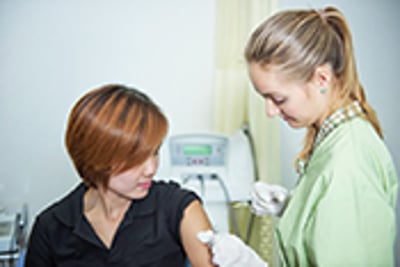FORCE's eXamining the Relevance of Articles for You (XRAY) program looks behind the headlines of cancer news to help you understand what the research means for you.
XRAY is a reliable source of hereditary cancer research-related news and information.
Learn more about the XRAY program
Keyword: vaccine
Update : A breast cancer vaccine for people with an inherited BRCA1, BRCA2 or PALB2 mutation
Most relevant for: People at increased risk for breast cancer undergoing prophylactic bilateral mastectomy due to an inherited mutation in BRCA1, BRCA2 or PALB2. People with TNBC who still have breast cancer after chemotherapy.
A breast cancer vaccine is showing promise in early clinical trials. Initially, the vaccine was tested in people with triple-negative breast cancer (TNBC) who were at high risk for recurrence. Now the vaccine is being tested to lower breast cancer risk among people with an inherited mutation in BRCA1, BRCA2 or PALB2. It is also being tested in people with triple-negative breast cancer who are at high risk for recurrence and are taking the immunotherapy drug Keytruda (pembrolizumab) after completing chemotherapy. (Posted 1/31/24)
Este artículo está disponible en español.
Read More
Relevance: Medium-High


Strength of Science: Medium-High


Research Timeline: Human Research


Study : Personalized vaccines may help pancreatic cancer treatment
Relevance: Medium-High


Strength of Science: Medium-High


Research Timeline: Human Research


Most relevant for: People with pancreatic cancer who have tumors that can be removed by surgery
Pancreatic cancer is usually diagnosed at a late stage when patients have few treatment options. Early study results showed that a pancreatic cancer vaccine delayed the return of cancer for nearly half of the participants. (Posted 8/29/23)
Este artículo está disponible en español.
Read More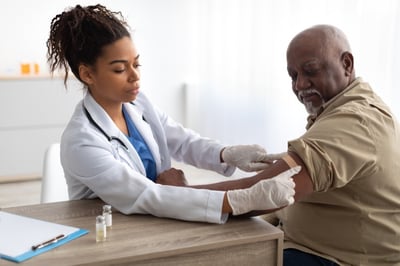
Update : Breast cancer vaccine trial begins enrolling people with BRCA1 and PALB2 mutations
Most relevant for: People with a BRCA1 or PALB2 mutation undergoing prophylactic bilateral mastectomy
A new vaccine was first tested on people diagnosed with triple-negative breast cancer. The vaccine is now being tested to prevent breast cancer among people with an inherited mutation in BRCA1 or PALB2 who are at high risk and who are planning to have a risk-reducing mastectomy. (Posted 1/9/23) Este artículo está disponible en español.
Read More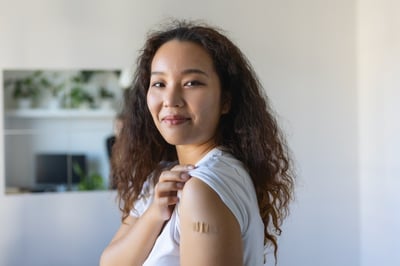
Relevance: Medium-High


Strength of Science: High


Research Timeline: Post Approval


Update : Pembrolizumab receives FDA approval for people with early-stage, triple-negative breast cancer
Relevance: Medium-High


Strength of Science: High


Research Timeline: Post Approval


Most relevant for: People with early-stage, triple-negative breast cancer who have a high risk for recurrence
The FDA approved the immunotherapy drug pembrolizumab (Keytruda) for the treatment of early-stage triple-negative breast cancer that has a high risk for recurrence. This marks the first approval for this type of drug, known as an immune checkpoint inhibitor, for the treatment of early-stage breast cancer. (posted 9/2/21)
Este artículo está disponible en español.
Read More
Update : FDA allows testing of a vaccine designed to prevent breast cancer
Most relevant for: Patients with non-metastatic triple-negative breast cancer at high risk of recurrence.
Scientists have been working for many years to develop a vaccine that will prevent breast cancer. The FDA recently announced that the first clinical trial to test a preventive breast cancer vaccine can begin. This vaccine is the result of over a decade of research in animals and human cells. While researchers will first test the vaccine in women who have breast cancer, they hope to use this vaccine in the future to prevent breast cancer. (posted 5/25/21)
THIS INFORMATION HAS BEEN UPDATED on 10/12/2021: The clinical trial discussed in this XRAY review has begun recruiting participants. Researchers hope to enroll 24 patients with non-metastatic triple-negative breast cancer. The trial is being conducted at the Cleveland Clinic in Cleveland, Ohio. More information on this trial can be found here.
Este artículo está disponible en español.
Read More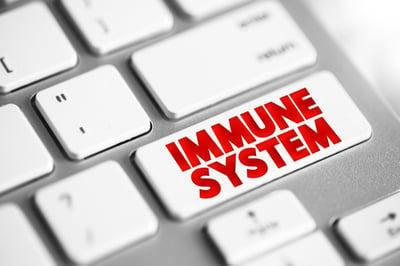
Relevance: High


Research Timeline: Post Approval


Guideline : Expert guidelines on COVID-19 vaccines and timing of breast screening tests
Relevance: High


Research Timeline: Post Approval


Most relevant for: People considering screening mammography after getting a COVID-19 vaccine.
COVID-19 vaccines work by helping the immune system destroy the virus. Lymph nodes are an important part of the immune system. COVID-19 vaccines may cause temporary swelling in some lymph nodes, which may look suspicious on a mammogram. The Society for Breast Imaging and other professional organizations have released recommendations for the timing of mammograms after COVID-19 vaccines. (3/30/21)
Este artículo está disponible en español.
Read More
Relevance: Medium-Low


Research Timeline: Human Research


Personal Story : A “flu shot” against breast cancer? Not so fast
Relevance: Medium-Low


Research Timeline: Human Research


Most relevant for: Women diagnosed with Ductal Carcinoma In Situ (DCIS)
There have been multiple reports in the media of a Florida woman who had a "shot" to treat her DCIS with a promising outcome. This XRAY reviews the underlying story about this early breast cancer vaccine trial. (10/25/19)
Read More
Relevance: Medium-Low


Strength of Science: Medium-Low


Research Timeline: Animal Studies


Study : Cancer “vaccine” injected directly into tumors works in mice
Relevance: Medium-Low


Strength of Science: Medium-Low


Research Timeline: Animal Studies


Most relevant for: People with advanced cancers
Immunotherapy is treatment that uses the immune system to fight cancer. Still in its infancy, it is a promising therapy that is changing how certain cancers are treated. A new study reports that tumors in lab mice were eliminated when they were injected with two immune system-enhancing agents. This new approach is called in situ (at the original site) vaccination because the injections are given directly into the tumors. It worked on several different types of mouse tumors, including lymphomas and breast tumors. This approach may be safer than conventional immunotherapy because it uses very low doses of the agents and it does not require tumors to have particular markers. (02/23/18)
Read More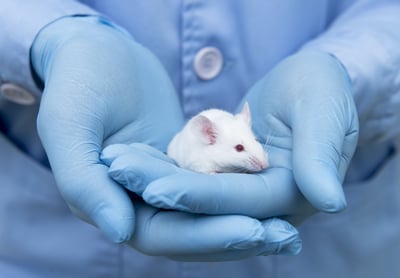
Relevance: Medium-Low


Strength of Science: Medium-Low


Research Timeline: Animal Studies


Article : Report on vaccines to prevent hereditary cancer
Relevance: Medium-Low


Strength of Science: Medium-Low


Research Timeline: Animal Studies


Most relevant for: High risk women who have not had breast cancer
On 05/30/2017, Good Morning America aired a segment entitled “Can a vaccine help prevent breast cancer at its earliest stages?” The story outlines the need for cancer prevention and hints at early research into a cancer vaccine. (8/1/17)
Read More